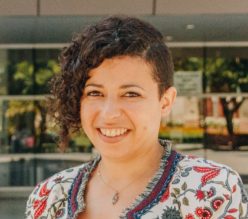I wrote the following as the Spectrum guest blogger for the ALA 2018 Annual Conference in New Orleans. To see this post in its original context, click here.
Day two of the Spectrum Institute included a panel on increasing diversity in library leadership, moderated by Tamika Barnes from Georgia State University Library.
Panelists reflected on their paths to their current leadership positions, and shared advice with a room full of current MLIS students and recent graduates. The panel included Anthony Davis from California State University, Fullerton; Nancy Kirkpatrick from Midwest Collaborative for Library Services; Cynthia Hohl from Kansas City (Mo.) Public Library; and Kirk MacLeod from the Open Data team for the Government of Alberta.
Although not everyone has their sights set on leadership positions, panelists encouraged us to recognize that leadership can take different forms. As library professionals, we lead people to information, share our ideas with colleagues, and grow in our professional credibility. With this in mind, we must consider the qualities that make a good leader: seeing problems as opportunities to create a shared vision, having enough self-awareness to know when you need to ask for help, and investing fully in whatever work you are doing with the understanding that it all has the potential to impact the direction of the profession.
Leadership positions, of course, bring new challenges. At times, promotions can prompt resentment among colleagues. As a leader, you must negotiate egos and consider whose perspectives are being represented or privileged, and whose are being silenced. Each of the panelists has experience being the only person of color in leadership, which comes with additional challenges, requiring them to think strategically about building connections. Nancy Kirkpatrick’s advice is to “make people comfortable if you can, but don’t be afraid to make them uncomfortable.”
For those at the beginning of their library careers, on their way into the job market, the panel urged us to remember that interviews go both ways. As we interact with potential future colleagues, we must consider whether we see evidence of the kind of work environment we are seeking. As professionals of color committed to diversity, we must consider whether we see evidence of that same commitment reflected in the current leadership of the institution, as this will deeply impact our day-to-day experiences. We must also go into an interview with a clear understanding of the community the institution serves and their information needs. This demonstrates engagement with the mission of the library and deeper level knowledge of the significance of the position to be filled.
The expertise offered by this panel will be put to good use as this year’s Spectrum Scholars take the next steps in their careers. By sharing their stories and the lessons they learned along the way, Barnes, Davis, Kirkpatrick, Hohl, and MacLeod allowed us to picture ourselves following in their footsteps.
